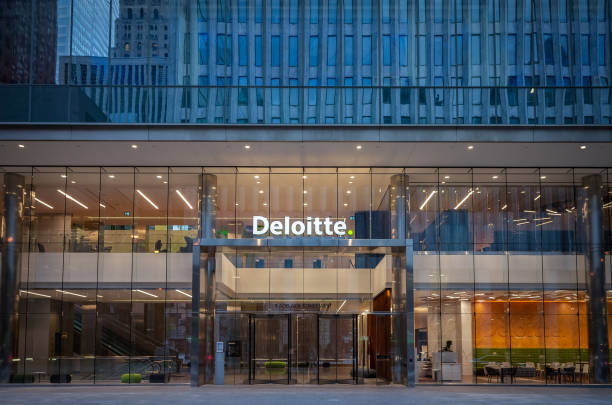|
Listen to this story
|
When the Robert De Niro and Anne Hathaway starrer ‘The Intern’ was released, it not only showed the unorthodox chemistry of the leads but also touched upon the theme of age discrimination in the workplace. Although a work of fiction, it bears an uncanny resemblance to actual events in the IT sector, and may not be purely coincidental, after all.
Millennials and Gen Z comprise 68 to 70% and 18 to 20%of the workforce, respectively. PayScale reports that top tech companies have the median employee age at three industry leaders—Facebook, LinkedIn, and SpaceX—under 29. Only three businesses—IBM, Oracle, and HP—have a median employee age of over 33.
Dispelling the Myths of Ageism in Indian Tech
Indian ITs are not far behind when it comes to age bias. As per a research by AIM, in India, major tech firms have substantially fewer senior folks beyond 50 years. For instance, both Infosys and TCS have around 50% employees between the age bracket of 20 and 35 years, 40% between 35 and 50 years, and a mere 10% above 50 years. On the other hand, IBM has 45% between 20 and 35 years, 30% between 35 and 50 years, and 25% above 50 years.
In their latest yearly income report, IT giants like Tech Mahindra and TCS saw a loss of over 6,000 and 2,200 employees, respectively. The companies are still focused on hiring freshers and are expected to recruit a total of 1.57 lakh new graduates by the end of FY23. In 2021, Infosys and TCS conducted campus hiring and onboarded 61,000 freshers. Infosys plans to hire more than 50,000 freshers in FY 2023, while TCS aims to recruit over 40,000 individuals.
In retrospect, about twelve years ago, Infosys had to face a few lawsuits regarding age discrimination from applicants over 50. Interestingly, it also discriminates against consultants of Indian origin, which is undoubtedly ironic.
“A survey by JobBuzz found that 33 percent of employees in India face or have faced age-based biases at their workplace. Despite legal protections, age discrimination can still occur in the workplace in various forms, such as not hiring older workers, denying promotions or benefits to older employees, or forcing early retirement. While some countries have put strong labour laws against it, the Indian ecosystem is still evolving, and the timing is just about right to bring in law against age-based employment discrimination,” Aditya Malik, founder of ValueMatrix.ai told AIM.
But unlike the US, India does not have a law against age discrimination as yet.
New Tech, Age-Old Problem
Last month, IBM relocated 80 AIX employees to India in the third quarter of 2022 amid reports that the “redeployed” employees were older and senior, sparking conversations about age discrimination in tech. The company has faced similar allegations in the past, including a 2018 lawsuit claiming IBM fired 20,000 ‘dinobabies’ over 40 to make space for a younger workforce. IBM has also recently settled a lawsuit with the family of Jorgen Lohnn, an employee who died by suicide after being fired. Despite denials from the company, the case highlights a broader problem of age discrimination in the tech industry.
Not just IBM, several other tech giants too have been accused of the same. In 2019, Google agreed to pay $11 million to end a class-action lawsuit brought by 227 individuals over 40 who alleged age discrimination during the hiring process. The lawsuit was filed by software engineer Cheryl Fillekes, who was highly qualified but repeatedly rejected by Google between 2007-2014, starting when she was 47.
According to AIM Recruits, most companies do not have an age policy while recruiting. But whenever they refuse to hire elderly folks it is because the specific job might be physically or mentally strenuous. Senior employees are laid off to cut expenses as they are generally highly paid.
Echoing similar sentiments, Malik said that senior employees might face a greater risk of being laid off due to factors such as higher compensation and benefits and the perception that they are less productive and may not be as adaptable to evolving technologies.
Many tech companies have come under fire for their preference towards younger generations over elders. From Facebook’s Mark Zuckerberg’s controversial comment in 2007, stating that “young people are just smarter“, to the lawsuit filed by the US Equal Employment Opportunity Commission (EEOC) against IBM for the alleged age discrimination, ageism in the tech ecosystem is a topic that continues to make headlines.
But why does this preference exist?
It stems from the perception that older generations are less flexible, unwilling to adapt to new technologies and are expensive. According to a study by Professor Andrea Rosales of the Universitat Oberta de Catalunya, ageist attitudes are present in the tech ecosystem worldwide.
While a large majority of companies focus on inclusivity and diversity, they often overlook the experience that senior folks can bring to the table.
In an industry where there is only a mere 10% of senior executives in IT and tech companies, it becomes important for companies to reassess the situation and support senior talent.







































































































